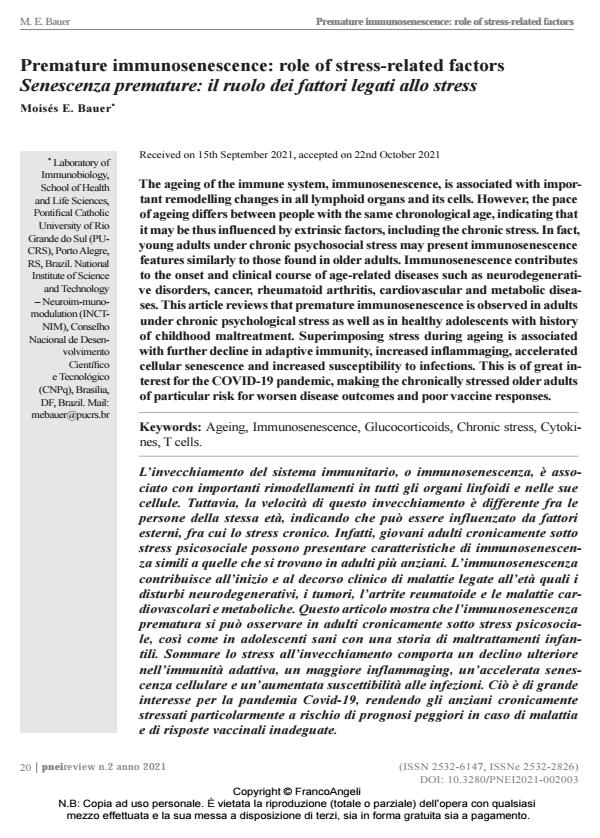Premature immunosenescence: role of stress-related factors
Journal title PNEI REVIEW
Author/s Moisés E. Bauer
Publishing Year 2021 Issue 2021/2
Language English Pages 14 P. 20-33 File size 120 KB
DOI 10.3280/PNEI2021-002003
DOI is like a bar code for intellectual property: to have more infomation
click here
Below, you can see the article first page
If you want to buy this article in PDF format, you can do it, following the instructions to buy download credits

FrancoAngeli is member of Publishers International Linking Association, Inc (PILA), a not-for-profit association which run the CrossRef service enabling links to and from online scholarly content.
The ageing of the immune system, immunosenescence, is associated with important remodelling changes in all lymphoid organs and its cells. However, the pace of ageing differs between people with the same chronological age, indicating that it may be thus influenced by extrinsic factors, including the chronic stress. In fact, young adults under chronic psychosocial stress may present immunosenescence features similarly to those found in older adults. Immunosenescence contributes to the onset and clinical course of age-related diseases such as neurodegenerative disorders, cancer, rheumatoid arthritis, cardiovascular and metabolic diseases. This article reviews that premature immunosenescence is observed in adults under chronic psychological stress as well as in healthy adolescents with history of childhood maltreatment. Superimposing stress during ageing is associated with further decline in adaptive immunity, increased inflammaging, accelerated cellular senescence and increased susceptibility to infections. This is of great interest for the COVID-19 pandemic, making the chronically stressed older adults of particular risk for worsen disease outcomes and poor vaccine responses.
Keywords: Ageing, Immunosenescence, Glucocorticoids, Chronic stress, Cytokines, T cells.
Moisés E. Bauer, Premature immunosenescence: role of stress-related factors in "PNEI REVIEW" 2/2021, pp 20-33, DOI: 10.3280/PNEI2021-002003